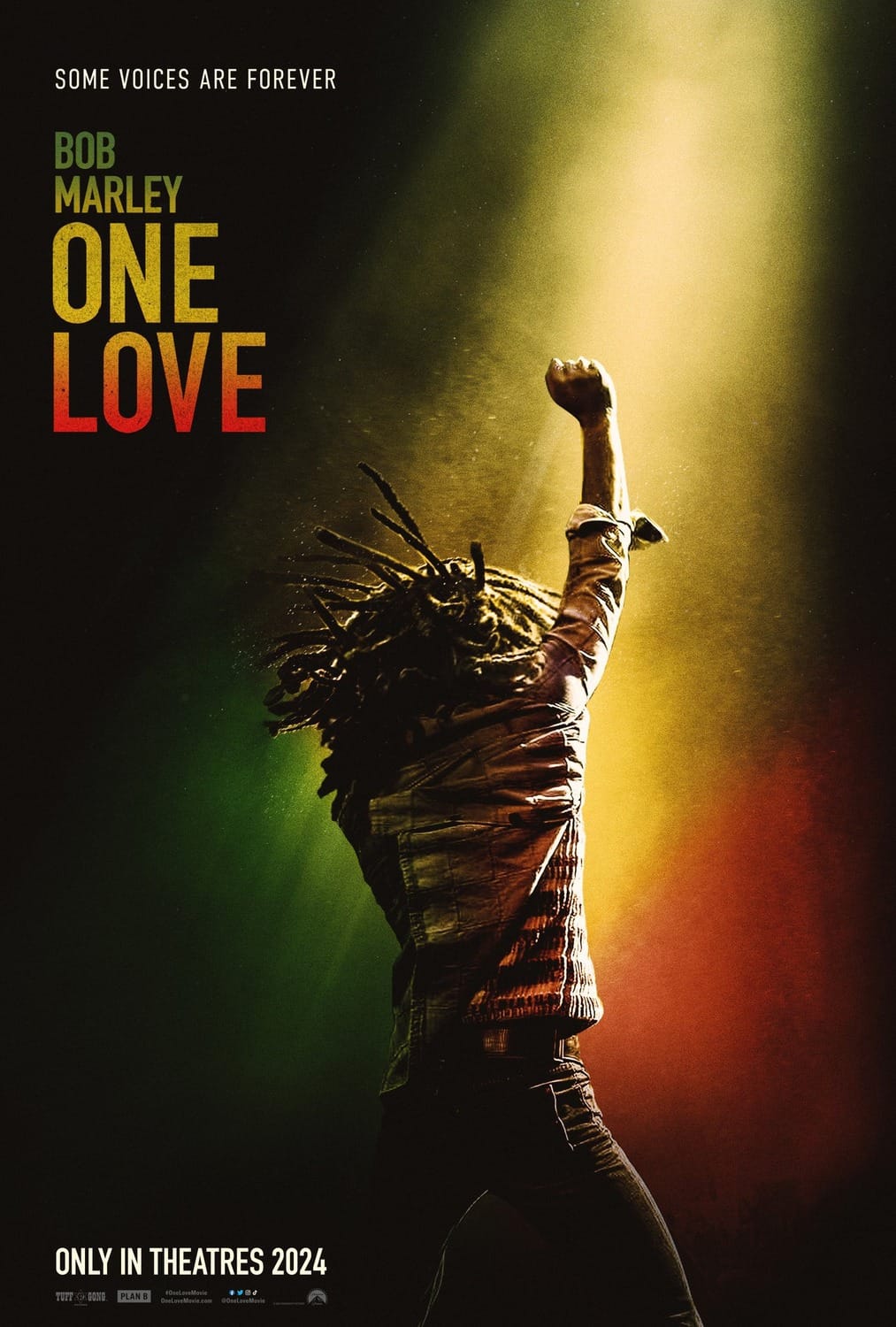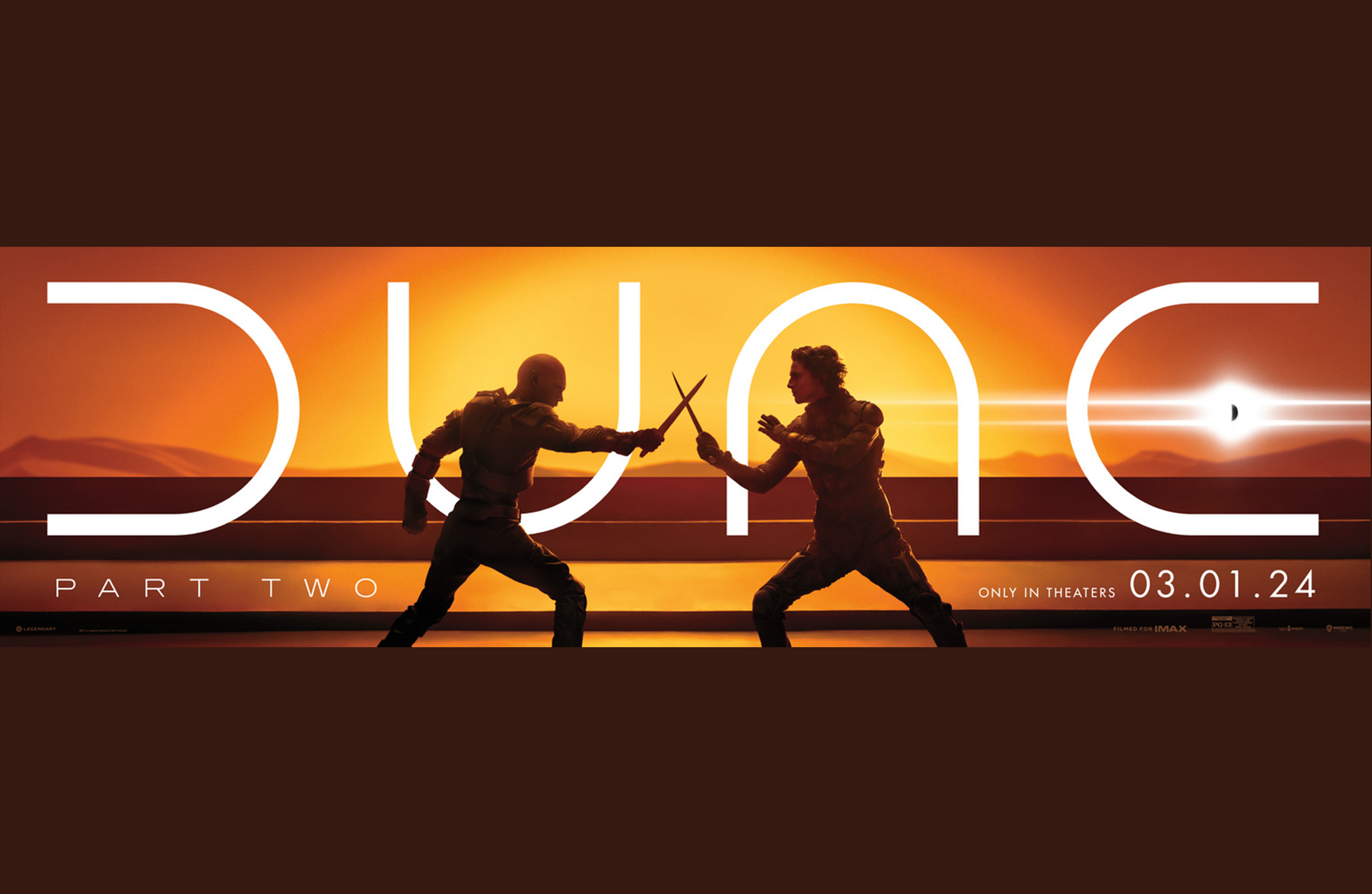Dune: Part Two
There was a time when Frank Herbert’s monumental 1965 sci-fi novel Dune was considered unfilmable. Chilean auteur Alejandro Jodorowsky’s gleefully grandiose 1970s attempt to adapt the novel into a 14-hour epic — drawing on talents as diverse as Salvador Dalí, Pink Floyd, H.R. Giger, and Mick Jagger — ultimately collapsed under the weight of its own ambition. Dune eventually reached the big screen with David Lynch’s idiosyncratic 1984 adaptation, which, despite an all-star cast, endured a critical pummelling and failed to set the box office alight. Following these two spectacular failures, the Dune cinematic wellspring would remain as dry as the deserts of Arrakis for the next 37 years.
Enter director Denis Villeneuve, who has spent much of the last decade establishing his credentials as today’s most passionate and visually unique science fiction director, with films such as The Arrival and Blade Runner 2049. When Part One of his contemporary retelling of Dune arrived in 2021, it did not disappoint. Villeneuve’s decision to split the book across two films allowed him time and space to give the tale of the betrayal and downfall of House Atreides and the hero’s journey of its young heir, Paul Atredies, the epic weight it deserves.
The epic sweep remains as grand as ever in Part Two, but where Part One was lyrical, Part Two is bombastic, gritty, and downright angry. Duke Leto is dead, House Atreides lies in ruins, and Planet Arrakis is once again controlled by the vile Baron Harkonnen. The natives, however, are fighting back. Rumours are spreading of a new leader amongst the secretive, desert-dwelling Fremen — a fearsome warrior by the name of Muad’Dib. Some are even speaking of a Messiah….
To call Dune: Part Two visually breathtaking is scarcely adequate. This is a truly stupefying film to look at — one which is capable of rendering even today’s CGI-jaded audiences thunderstruck. Coupled with an explosive score by Hans Zimmer, the film demands to be seen on the biggest screen with the best sound system possible. Villeneuve, however, contrasts the Sturm und Drang with moments of exquisite stillness and masterful worldbuilding. The attention to detail in his depiction of the Fremen culture is beyond reproach; where Lynch’s Fremen were a bunch of white guys in rubber suits, Villeneuve has painstakingly constructed a multicultural analogue of the Tuareg tribes of the Sahara, reflecting Herbert’s original Islamic-inspired vision. Their desert fastnesses are reflections of the ziggurats of Mesopotamia; Villeneuve’s Arrakis feels authentically ancient and utterly believable as the birthplace of a galaxy-engulfing religious war.
Which brings us to the entire point of the film… a point which is difficult to discuss without introducing spoilers. Villeneuve aims squarely at a point which was completely lost in Lynch’s film: Paul Atredies is not a hero, but a mere pawn set on a hero’s journey by forces outwith his control. This is ultimately a movie about the hypocrisy of religious zealotry and manipulation of the credulous by power-hungry elites — a message which feels all too close to home right now. Putting that message at the heart of a blockbuster on this scale is reason enough to recommend it wholeheartedly.

Bob Marley: One Love
The rock biopic is a notoriously mercurial genre (if you'll excuse the pun). Truly great movies based on the lives of pop and rock stars are extremely thin on the ground; for every explosive character study (like Alex Cox's Sid and Nancy), there are a hundred tired, formulaic hagiographies with less substance than a puff-piece in Hits magazine. The perennial problems are twofold. First, the greatest rock stars are their own story. They lay their souls bare on stage and on their recordings so thoroughly that there's no story left to tell. Secondly, the actual nuts-and-bolts of recording studios and tour backstage areas are so uniformly mundane that recreating the making of a classic album on screen ends up looking like the making of every other classic album.The latest musical icon to have his story committed to celluloid is reggae superstar Bob Marley. Partly produced and endorsed by his widow Rita and children Ziggy and Cedella, One Love is not a straight ‘cradle to grave’ narrative, but focuses on a two-year period in the mid-1970s which saw Marley ascending to the height of his fame. The film opens with Marley, already a star in his native Jamaica, announcing that he will stage a concert promoting peace between the warring factions competing for control of Jamaica's government. On the eve of the concert, Marley and Rita are the victims of an attempted assassination in which Rita is almost killed. Fearing for his safety and that of his family, Marley sends Rita to the U.S. while he begins a self-imposed exile in London and sets to work on his next album.
Marley's ‘exodus’ to the UK provides the inspiration for the LP, which becomes a global smash-hit, and is still widely regarded as his masterpiece. It's not all plain-sailing for the rising star, though; Marley is arrested for possession of cannabis (well, duh!) and held briefly by the London police. More troubling is the stubborn infection in one of his toes which leads to a cancer diagnosis — one which would cut his life tragically short at the age of just 36.
The story is almost irrelevant in this picture, however; the real substance of the film is provided by the constant presence of Marley's unforgettable songs. And that, unfortunately, is also the movie's biggest problem. Without the music, this movie is 107 minutes of absolutely nothing. The script is banal to the point of being little more than a vague collection of episodes punctuated by the occasional (supposedly-profound) cliché, with the two excellent lead actors (Kingsley Ben-Adir and a scene-stealing Lashana Lynch) forced to utter lines like, “Sometimes the messenger becomes the message…” with a gravitas the script never comes close to.Sadly, the film tells us nothing about the contradictions that made Marley the fascinating character he was. For example, his many infidelities and dismissals of women are hinted at but hastily swept under the rug in favour of unquestioning hero-worship. Marley's immortal songs, however, make the ticket price worthwhile; but to be completely frank, if I had $15 to spend on Bob Marley, I'd buy a CD of Exodus before I'd buy a ticket for One Love.
Recently arrived in the Tri-Cities from Scotland, Damian Beagan is a former freelancer who has written music and movie reviews for UK websites.

